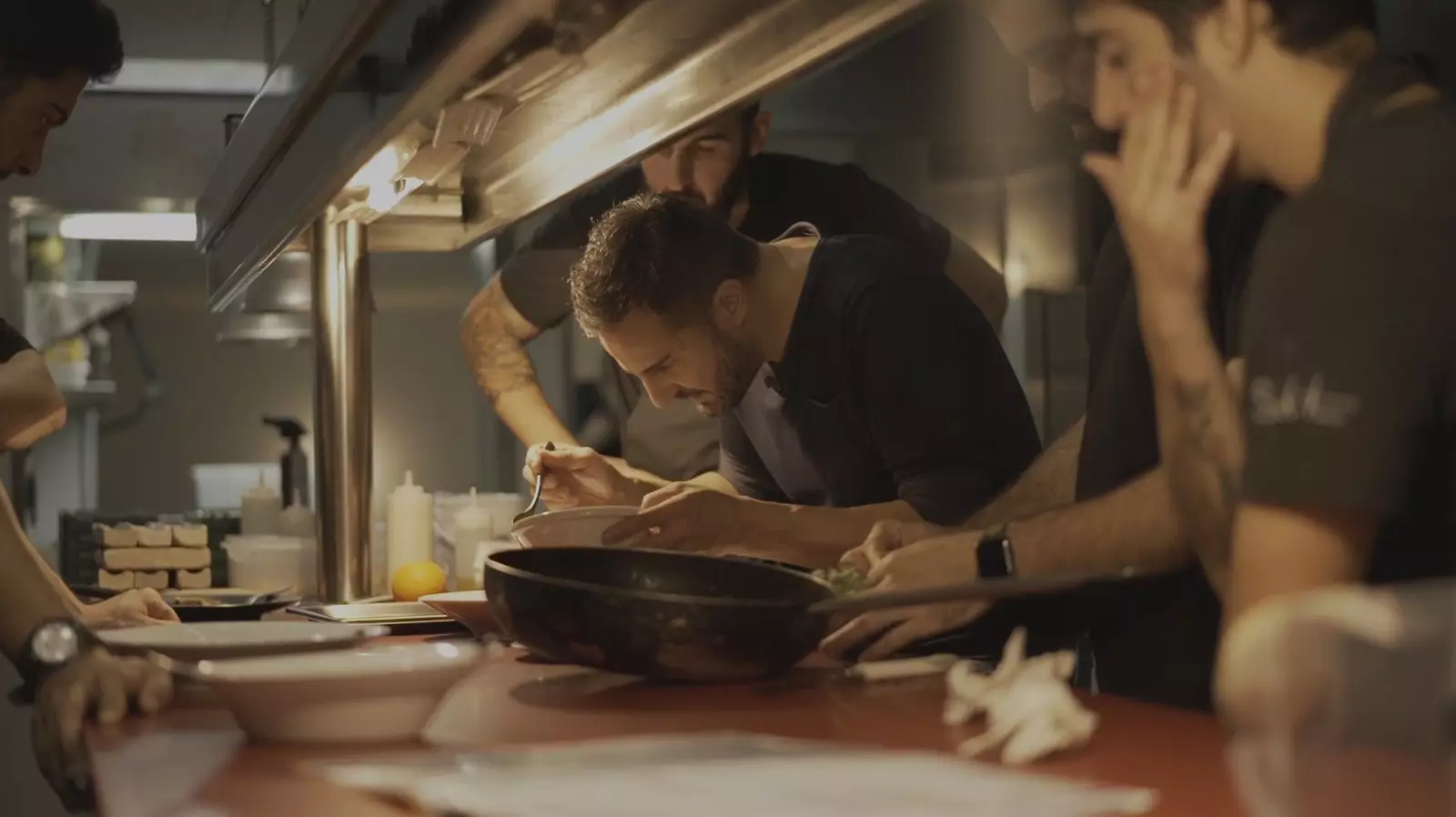
There is a group of chefs who are turning Mallorca upside down
I still remember the impact of the talk of santi taura at the Fòrum Gastronòmic de Girona held three years ago, whose statement already presaged what we saw in the auditorium: The new Balearic cuisine. cooking story.
On the screen, a Majorcan empanada in all its splendor. It was not a trompe l'oeil, nor a nostalgic wink nor a storytelling trick (È just a trick). , it was a wonderful pie which, furthermore, forms a fundamental part of the tasting menu that Santi offers at DINS: a restaurant concept “rooted in the bowels of an island, linked to its land and closely linked to its gastronomy and history. Our job is to update the gastronomic culture of our place and defend the Balearic cuisine and memory in the best way”.
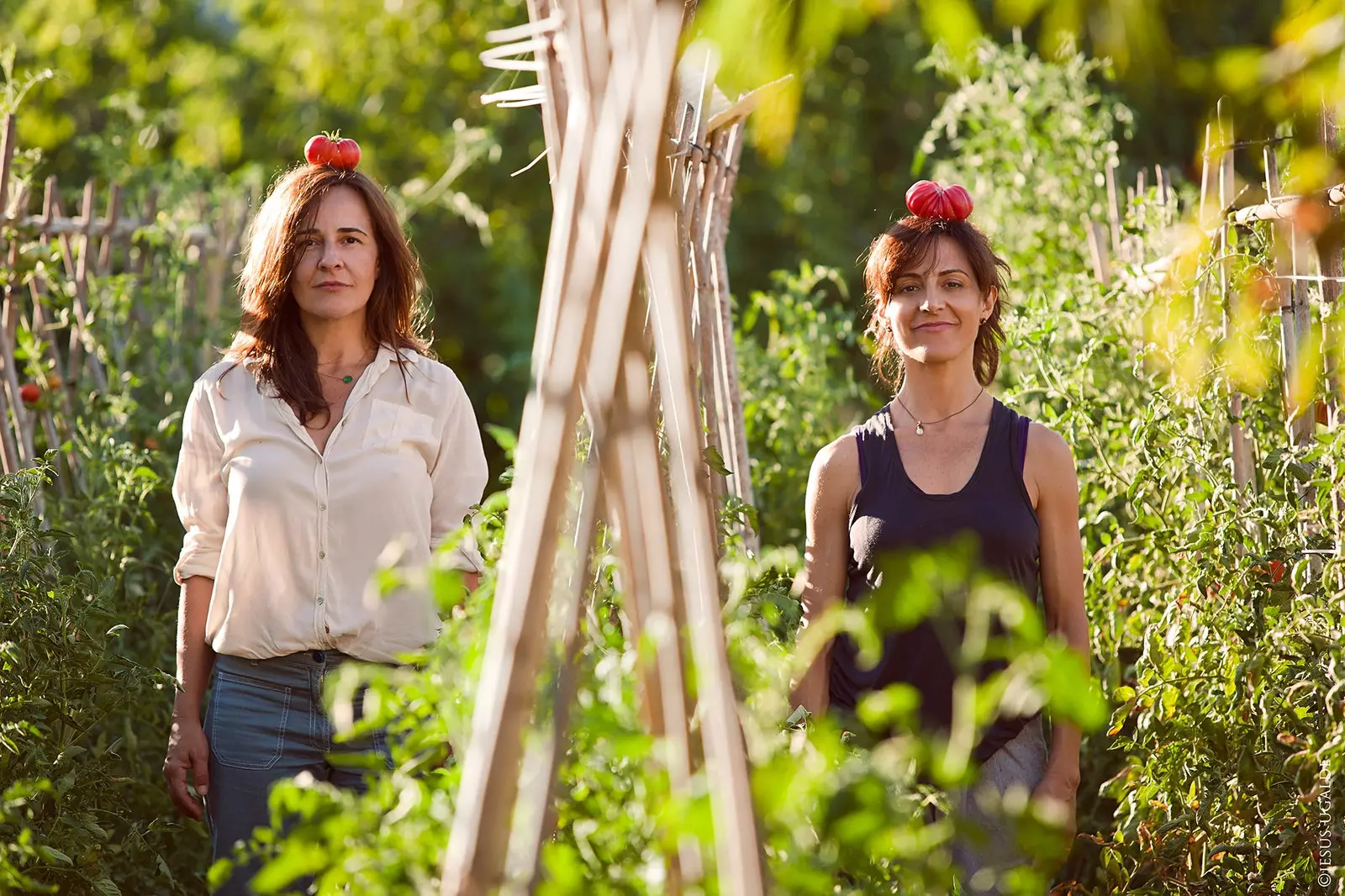
Maria and Teresa Solivellas
It is something that I have been suspecting in recent years, after each visit to each eatery throughout the island, from the Serra de Tramuntana to Capdepera and from Pollença to Santanyí: Balearic gastronomy breathes craftsmanship, territoriality and real commitment to the environment, that same speech with which so many creative restaurants in the Peninsula are now filling their mouths, but which so often stops halfway; So many times it stays in the headline. But not in Majorca : María and Teresa Solivellas, at Ca Na Toneta (but now also at Coca Toneta at the Sant Francesc Hotel, in the historic center of Palma); Andreu Genestra at the Hotel Son Jaumell, Es Princep and Aromata; Fernando P. Arellano in Es Capdellà and Portals Nous; Álvaro Salazar, now at the Park Hyatt in Canyamel; Maca de Castro, in Alcúdia; or Marga Coll in Miceli and Arrels.
Can they be called 'the sensible generation'? Do they have the wickers to be? If we make an analogy with what a literary or artistic generation means, yes: according to Ortega y Gasset, “a generation is not a handful of distinguished men, nor is it simply a mass: its members come into the world endowed with certain typical characters that lend them a common physiognomy, differentiating them from the previous generation. Within that framework of identity, they can be individuals of the most diverse temper”.
A coincidence at a certain time, an analogous way of understanding cooking and personal ties that go beyond simple camaraderie —this group (and those around it) face the present with a discourse that is as totemic as it is honest: Balearic gastronomy will be faithful to his memory or it will not be.
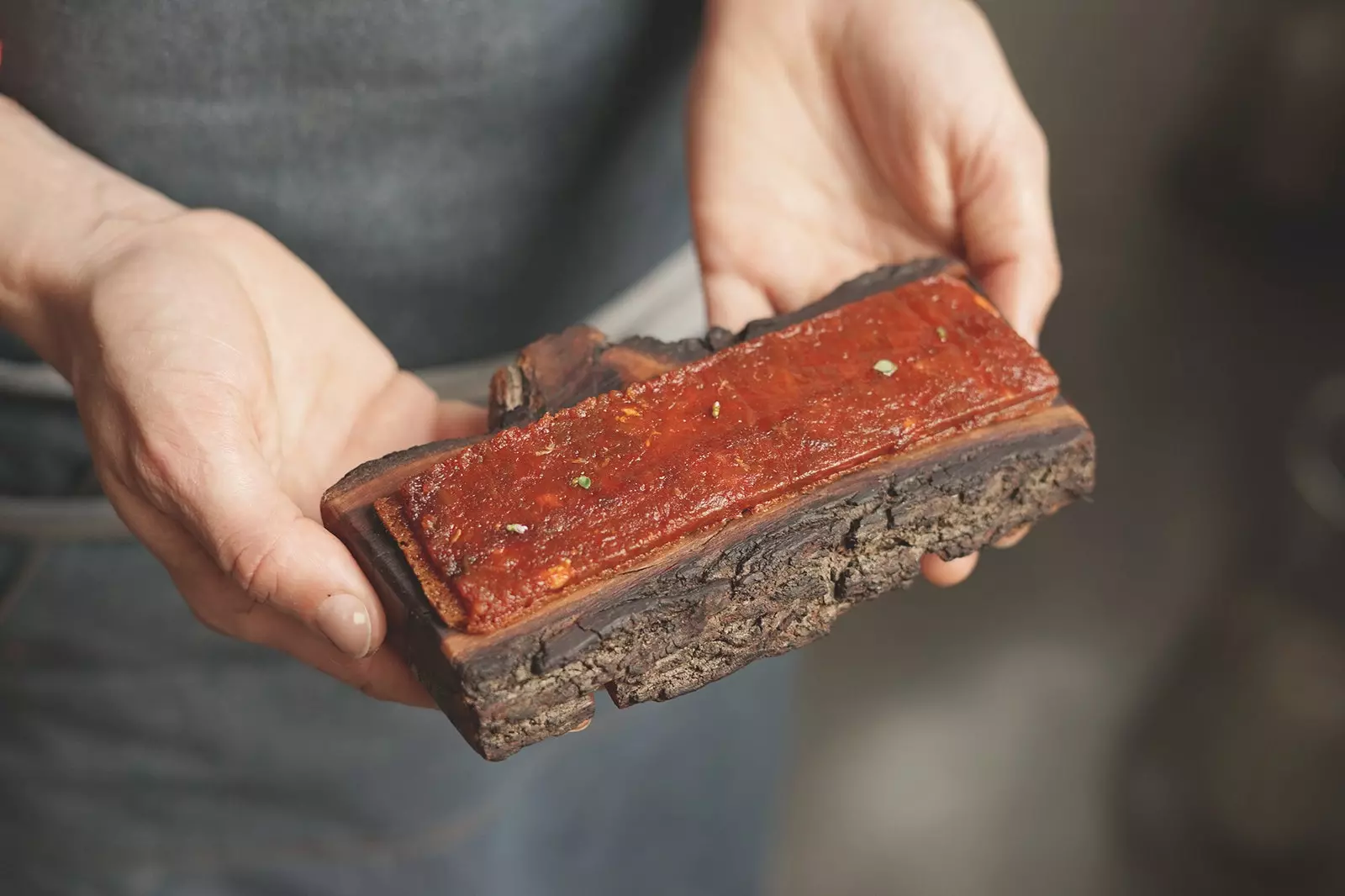
Sobrasada, without more
It is part of the speech Mary Solivellas , spearhead of that natural link with the garden from Caimari (and chosen by our North American version in its Where in the World to Eat selection), “the group has been generated organically; we are an island in the middle of the Mediterranean, with an ancestral rural culture that has left us an immense legacy in terms of agri-food biodiversity, as well as an extensive and rich recipe book”.
Sure, Maria; but a group of brave people was also needed to look directly at that review legacy and value it. And you are doing it.
Belief in our products, our culture and our land, is the sentence that puts ahead Marga Coll and that is breathed in each of the five passes of his tremendous breakfast r in Arrels of the Gran Meliá Hotel de Mar, in Illetes: “For many years Mallorca has mistreated and renounced our roots but not now, we are a 'young' group (well, I'm 43 :) , with the desire to do things good and aware of how lucky we are here: we have excellent fish and shellfish, meat from traditional livestock, orchards and mountains at a maximum of forty-five minutes by car”.
What has changed, Margaret? “Well what Not so many years ago, the island's great chefs were foreigners: March Fosh, Schwaiger or Joseph Sauerschell, But if I'm honest, it's costing us a lot. Our gastronomy is still a great unknown but we are taking small steps, in most cases recovering small family and artisan businesses”.
Maybe it's one of the keys. family heritage and business awareness connected to its immediate environment —It should not be by chance that the approach of the large hotel chains to this group of autochthonous chefs and cooks has come later, with their houses already consolidated.
And it is that except in the case of Fernando P. Arellano in Son Claret or Álvaro Salazar in the Park Hyatt (fabulous chefs who have based their cuisine on the personality of the island, and not the other way around) the bet of the great majority of hotels has been for native names. It is the type of decisions that builds a gastronomic identity and that must also be said loud and clear: Bravo.
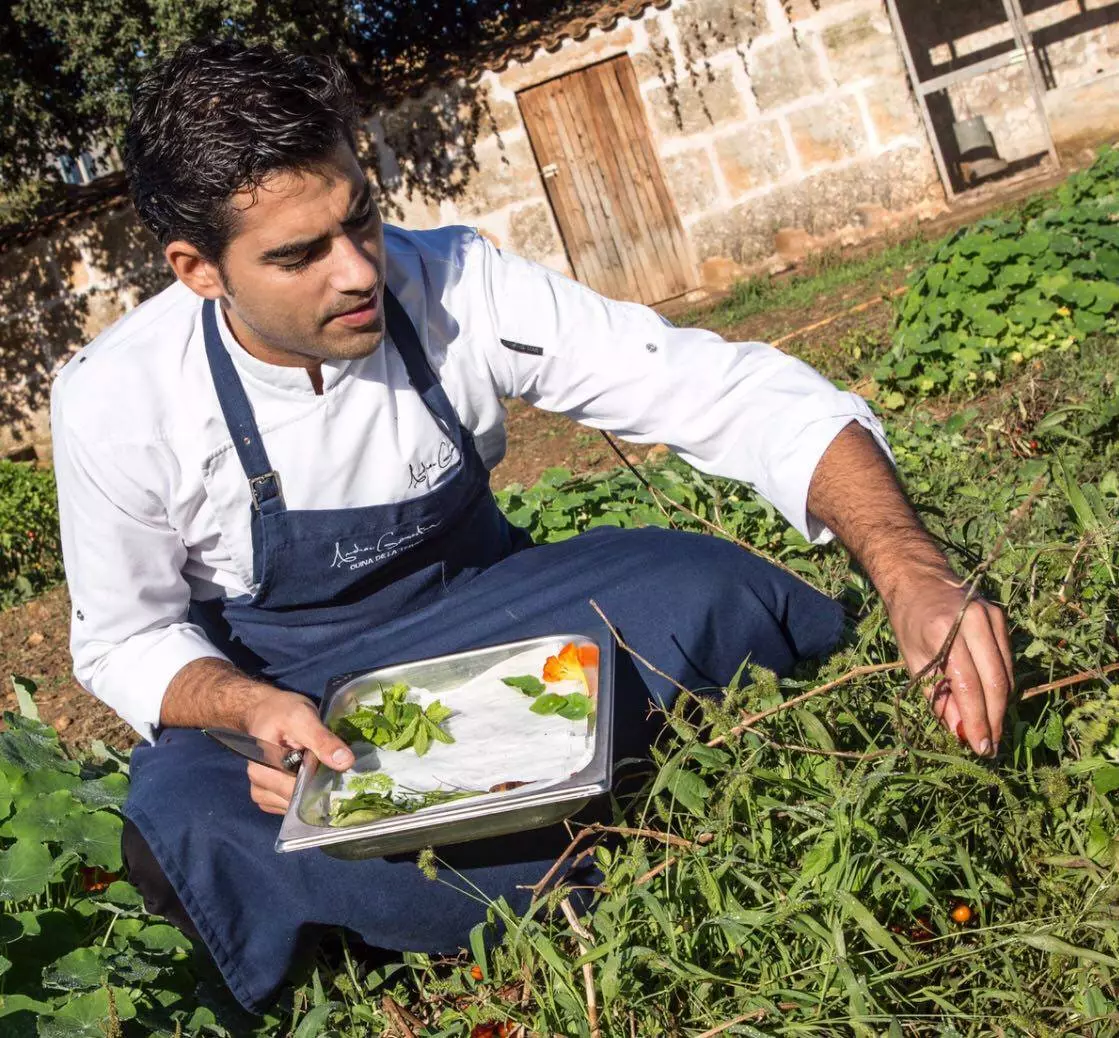
Andrew Genestra
East model of small houses with craft spirit It is precisely the one that Santi Taura puts on the table as one of the keys to change: “from approximately fifteen years ago until now, Mallorca has shown an important change in its restaurant model, the chefs and cooks have taken the reins of the business completely changing the existing offer up to that moment and forming a more solid gastronomic fabric that makes it easier for the diner to find a more personal kitchen in each house and in many cases a coincidence of style”.
But can we speak of a generation, Santi? “Mallorca is very small and we all know each other, we know what we do in our homes and there is a feeling of union with like-minded people who share similar gastronomic concerns and above all the love for our land and the desire to make known the flavors of the island; yes, you have to make a personal effort not to copy the neighbor and contribute something different to the group so that there is diversity within the same local character…”.
Recover the usual recipe book with contemporary techniques, value the product (and also the producer), link the gastronomic identity with crafts and tradition; build a discourse (precisely now, that we are all dizzy with the discourse) anchored in an authentic ecosystem, in that cuina de la terra that Andreu Genestra defends so well.
Mallorca has always lived, somehow, a little apart from the ups and downs of the Peninsula and his somewhat insane dedication to that techno-emotional kitchen (spherifications, jellies, vacuum cooking, foams and trompe l'oeil) whose gravitational waves we still suffer. And I think it was for the better.
Origin, identity and history; cuisine from the land closer to pleasure (that is, to the stomach) than to the intellect; traditional dishes, recognizable gender —for a hake to taste like hake, for God's sake—and the work of some families whose ultimate purpose is to make us feel at home.
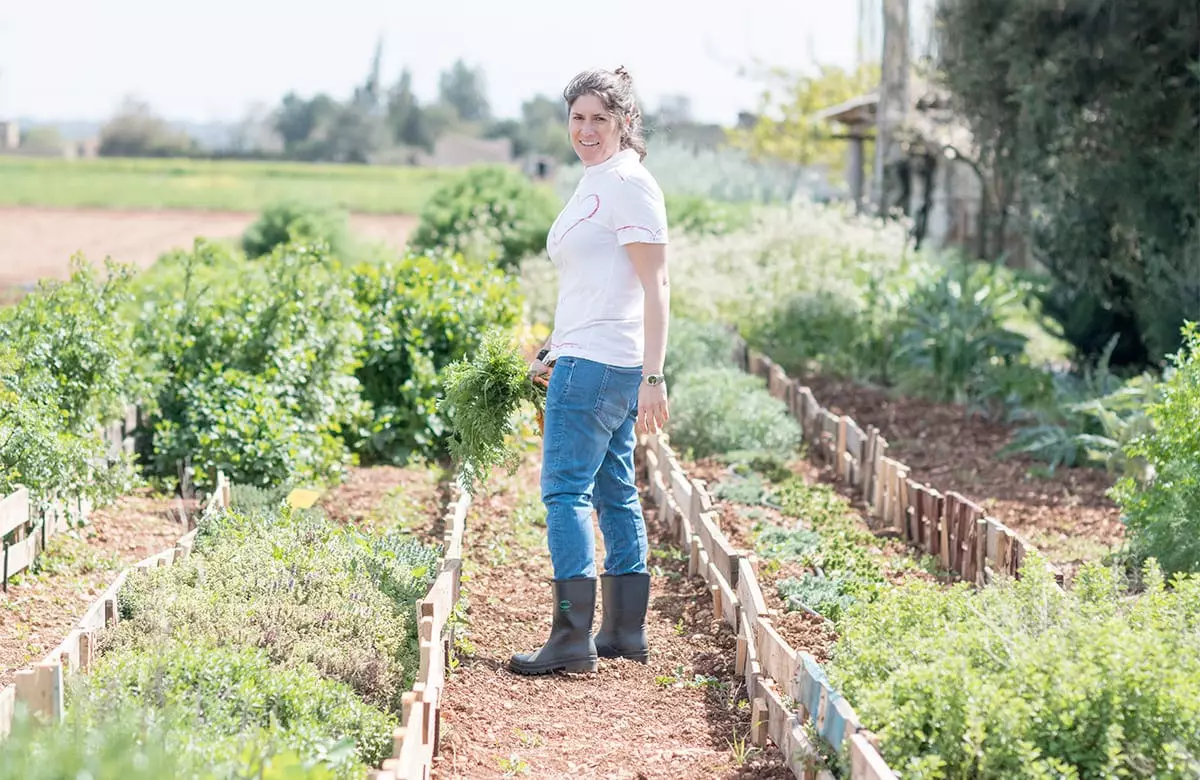
Maca de Castro
